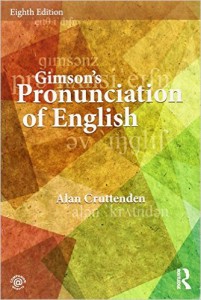Listening Cherry 15: Sex education and Phonology … Part 2 – We are told the facts of life
In the previous post I argued/complained that things that we teach, and get taught would fail a reality check. These were the rules of connected speech which we teach our students, and the phonology we get taught in our teacher-training. We are given simple rules which are easy to teach, which are good for promoting intelligible pronunciation but they misrepresent everyday spontaneous speech, and this has had seriously negative effects on the teaching of listening.
I have had the strong impression for much of my professional life that phonologists and phoneticians were not telling us the facts of life – instead they give us romantic fictions, and refrain from telling us about the truth which is – for them and us – embarrassing.
But I somewhat misrepresented the situation: phoneticians and phonologists do mention reality, they do mention the facts of life. But they do it in non-obvious ways.
For example, Cruttenden (2014) tells us
… there are some uncommon reduced forms which are heard only in rapid speech …. and these should not be imitated by foreign learners. The use of |jə| or |mə| in such phrases as your mother, my father will sound slangy and, if employed inappropriately by a learner, could appear comically incongruous. (Cruttenden, 2014: 333 – emphasis added)
The key words in this quotation are given in bold: one of them is a statement of frequency (‘uncommmon’) another is a statement of restricted application (‘only in’) and the last is a piece of advice (‘these should not …’).
Once we take into consideration the three speech styles I mentioned in Listening Cherry 13 (greenhouse, garden and jungle), we can see that the use of the words ‘uncommon’ and ‘only’ refer to garden (genteel, slow colloquial) speech – the type of speech which is an appropriate model for clear pronunciation. However, for the jungle, which is the domain for listening, these terms need to be translated:
- uncommon should be read to mean ‘can happen at any time’
- only in rapid speech should be read to mean ‘normal in everyday speech’
Cruttenden also advises that ‘these should not be imitated by foreign learners’. This advice means ‘these are not appropriate for the goal of pronunciation’ (which is, remember, quite different from the goal for listening). This advice needs to be read to mean ‘essential to master for the purposes of learning to perceive and understand’.
We should trawl such books as Cruttenden (2014) for their mentions of rapid casual speech (even though they are often deprecatory/disparaging) to provide us with a syllabus for listening.
For example, here’s a fact of life from the jungle in Cruttenden (2014: 315) who gives examples of a type of elision ‘… which sometimes occurs in rapid speech’ which include ‘the ‘very reduced forms of I’m going to /ˈaɪm ɡənə/, /ˈaɪŋənə/, /ˈaɪŋnə/. We can present them in the table below, showing their rightful place in the greenhouse/garden/jungle perspective.
Greenhouse | Garden | Jungle |
|---|---|---|
/ˈaɪm ɡəʊɪŋ tuː/ | /ˈaɪm ɡənə/ | /ˈaɪŋənə/ /ˈaɪŋnə/ |
So, expert phoneticians and phonologists do mention the truth, but in their books for the ELT market:
(a) their main focus is on the greenhouse and the garden
(b) it takes careful reading to find the truth (footnotes, last paragraph of section)
(c) their comments have to be translated
and an even stronger but …
(d) we in ELT don’t want to know
More about (d) in the next post.
Cruttenden, A. (2014). Gimson’s pronunciation of English [8th Edition]. Oxford: Routledge.



Leave a Reply